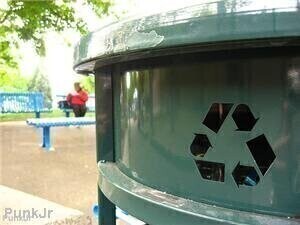Environmental Laboratory
How does Glastonbury Festival handle its waste?
Jun 30 2023
Renowned worldwide for its eclectic music and lively ambiance, the Glastonbury Festival has also made headlines for its environmentally-conscious waste management strategies. However, managing waste in an event that hosts around 170,000 individuals is no easy feat, and the festival has had its share of trials and tribulations along the way.
Back in 2014, Glastonbury Festival was embroiled in a scandal when a steel tank containing human waste sprung a leak. The resulting leakage found its way into the Whitelake River, with detrimental impacts on the water quality and aquatic life. The legal proceedings that ensued concluded with the festival receiving a fine of £31,000 for this unfortunate incident, alongside the cost of prosecution.
Yet, Glastonbury’s waste management system received compliments from the court, with the judge acknowledging the festival's extensive planning and responsiveness. The festival used large steel containers for waste storage and had dedicated management plans for waste and rivers. The judge further emphasised the importance of collaboration in dealing with such events, expressing hope that the hearing would not hinder future cooperation.
In the aftermath of the incident, the festival committed to a rigorous and comprehensive approach to prevent similar situations. The founder, Michael Eavis, gave assurances that substantial investments had been made to fortify the infrastructure, eliminating the possibility of future leaks.
Fast forward to 2023, Glastonbury Festival ended with a sensational performance by Elton John. With the music fading away, and attendees returning home, the true heroes of the festival began their work - the hundreds of volunteers charged with the monumental task of restoring Worthy Farm to its pristine condition. Among the sea of departing campers and discarded rubbish, these diligent workers endeavored to execute the festival's central philosophy, "Love the Farm, Leave No Trace."
The strategy behind Glastonbury's waste management goes beyond mere cleanup. The festival promotes waste reduction, pushing for most tents to be taken home rather than abandoned. To facilitate recycling, the event boasts its own on-site recycling plant, one of the largest of its kind. It prohibits single-use plastic items and encourages the use of compostable packaging, even implementing a ban on disposable vape sales. Glastonbury's comprehensive approach to waste management also includes specific guidelines for vendors - ensuring that all cutlery used is made from FSC-assured wood, and single-serving sachets are strictly forbidden.
In addition, Glastonbury also tackles sewage waste, an often overlooked yet essential aspect of such a large-scale event. More than 1,200 compost toilets are scattered across the site, transforming human waste into horticultural compost. Glastonbury's "long drop" toilets utilize no chemicals, ensuring that the waste can be conveniently processed at local sewage works. Taking innovation one step further, the festival has even partnered with Bristol University and UWE on the 'Pee-Power Project' to generate electricity from urine.
While Glastonbury has taken strides to address waste management, it acknowledges the need for cooperation from festival-goers. It urges attendees to bring their own water bottles, use only what they need, correctly dispose of waste in recycling bins, take their tents and belongings home, and avoid using disposable wipes. In doing so, Glastonbury reinforces the importance of environmental sustainability and promotes a collaborative effort in waste management - making it not just a festival of music, but also a festival of sustainability.
Waste management at such large-scale events is a demanding and complicated task. Glastonbury, however, demonstrates a commitment to minimizing environmental harm through a series of organized strategies. Most notably, it demonstrates how this can be achieved with a synergistic approach, combining high levels of planning, continuous improvement, and meaningful partnerships. For instance, the festival has built relationships with organizations like WaterAid, Oxfam, and Greenpeace, which not only reflect Glastonbury's environmental and social ethos but also contribute significantly to its waste management strategies.
Another key factor in Glastonbury’s success in managing waste is its emphasis on community engagement. Festival-goers are not just passive participants but are encouraged to actively contribute to the preservation of the site. The philosophy 'Love the Farm, leave no trace' is more than just a catchy slogan; it represents a call to action for every festival attendee. Initiatives such as a team of recycling volunteers, referred to as 'wombles', are testament to the level of community involvement. The wombles, composed of ordinary festival attendees, put significant effort into collecting litter and tidying the festival area, demonstrating an exceptional level of commitment to environmental stewardship.
Furthermore, innovation plays a central role in Glastonbury’s waste management strategies. Unique projects like the ‘Pee-Power Project,’ a collaboration with the University of Bristol and UWE, is one such example. The initiative harnesses the potential of human urine to generate electricity, underlining the festival's commitment to finding creative and sustainable solutions for waste. This relentless pursuit of innovative solutions, backed by stringent planning and regulation, contributes significantly to Glastonbury's reputation as a leader in environmental responsibility among music festivals.
Glastonbury provides a blueprint for managing waste at large events, combining meticulous planning, sustainable practices, community involvement, and innovative thinking. Its success lies in recognizing that environmental stewardship is not merely a box to tick but a fundamental aspect of its identity, demonstrating how the entertainment industry can play a significant role in promoting sustainable practices.
Digital Edition
AET 28.3 September 2024
September 2024
Business News - ENVEA announces acquisition of APAQ Group - SICK and Endress+Hauser sign strategic partnership - Efforts to curb gas flaring intensify amid environmental concerns Air Monito...
View all digital editions
Events
WEATHER • CLIMATE • WATER / EARTH OBSERVATIONS / GREEN ECONOMY
Oct 29 2024 St. Petersburg, Russia
Oct 30 2024 Hong Kong
Nov 05 2024 Toronto, Canada
Nov 05 2024 Rimini, Italy
Nov 06 2024 Ho Chi Minh City, Vietnam



















